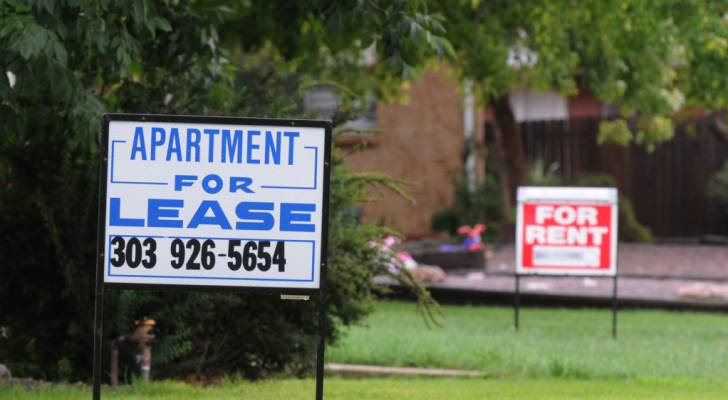
Do you know how your landlord sets the rent? In many parts of the country, it may be done using algorithms.
These third-party-run algorithms use proprietary and public data and may allow landlords to indirectly collude to charge higher rents.
"What these companies are doing is they’re replacing what used to be a smoke-filled back room with a computer algorithm,” Rep. Javier Mabrey of Colorado told ABC Denver 7 News in March.
Don’t miss
- I’m 49 years old and have nothing saved for retirement — what should I do? Don’t panic. Here are 5 of the easiest ways you can catch up (and fast)
- Thanks to Jeff Bezos, you can now become a landlord for as little as $100 — and no, you don’t have to deal with tenants or fix freezers. Here’s how
- Gain potential quarterly income through this $1B private real estate fund — even if you’re not a millionaire. Here’s how to get started with as little as $10
These algorithms have cost renters a lot of money, with a report released under the Biden administration estimating them to have cost U.S. renters $3.8 billion in 2023, with Denver renters in particular having paid, on average, $136 more per month.
Now, lawmakers in Colorado, including Rep. Mabrey, are trying to ban them in House Bill 25-1004. The bill cleared the state Senate on April 29, with its fate now in the hands of Gov. Jared Polis.
So, what would the bill do? And, how would the ban affect renters and landlords? Here’s what you need to know.
How do rent-setting algorithms work?
This predictive software uses extensive market data to offer landlords profit-maximizing recommendations about rental terms, including pricing. A system, the American Economic Liberties Project says, can allow landlords to “limit supply and drive up rents without explicitly sharing data … exploiting a loophole in laws that prohibit price-fixing.”
But states have begun to take notice, and Colorado joined a lawsuit with seven other states and the Department of Justice against RealPage, a commercial revenue management software provider based in Texas. According to Economic Liberties, RealPage’s clients comprise around 90% of investment-grade multifamily rental housing units in the U.S.
The lawsuit, even if successful, may not be enough to fully protect consumers from all rent-setting algorithms, say some Colorado lawmakers. That’s why they are trying to ban such software altogether.
"We need to stand up and say, ‘Enough is enough,’” Rep. Mabrey told Denver 7. “We’re not going to wait for the courts, and this is illegal in the state of Colorado.”
Read more: Want an extra $1,300,000 when you retire? Dave Ramsey says this 7-step plan ‘works every single time’ to kill debt, get rich in America — and that ‘anyone’ can do it
What would a ban on rent-setting algorithms mean for landlords and renters?
The proposed bill would prohibit algorithmic devices if they are intended “to set or recommend the amount of rent, level of occupancy, or other commercial term associated with the occupancy of a residential premises” by two or more landlords in the same or related markets. It would also ban algorithmic devices that recommend any of these terms “based on data or analysis that’s similar for each landlord.”
Violations of the law would be considered “an illegal restraint of trade or commerce” and would be punishable under Colorado’s antitrust laws.
The Colorado House of Representatives has approved the bill already, and it now heads to the state Senate. If it becomes law, unlike a similar bill that failed in 2024, Colorado would be a pioneer in passing this legislation — although other states have tried.
Proposed bills prohibiting these algorithms also stalled in Illinois, New York and Rhode Island in 2024, while a similar bill did pass the Washington Senate and is now awaiting a House vote.
Four cities have successfully instituted bans, including Minneapolis, most recently, as well as San Francisco, Philadelphia and Berkeley.
Not everyone is in favor of these new laws, though.
“I just don’t think we need more regulation, more legislation in this space where any time the government interferes, we distort the market, and the results are going to be unexpected," Rep. Chris Richardson told Denver 7 in March.
Richardson said many landlords are small business owners or elderly homeowners who could be hurt by the new rules. Meanwhile, the Colorado Apartment Association told Denver 7 that the algorithms are a “critical tool” for assessing the market.
It remains to be seen which argument will win out — and how rent prices will be affected in cities and states where bans pass.
However, with housing costs already inflated in the post-pandemic era, renters would most likely appreciate any efforts to try to bring prices in check, especially if they are being artificially increased by modern methods of price collusion.
What to read next
- Don’t have the cash to pay Uncle Sam in 2025? You may already be eligible for a ‘streamlined’ handshake with the IRS — here’s how it works and how it can potentially save you thousands
- Here are 5 ‘must have’ items that Americans (almost) always overpay for — and very quickly regret. How many are hurting you?
- Robert Kiyosaki warns of a ‘Greater Depression’ coming to the US — with millions of Americans going poor. But he says these 2 ‘easy-money’ assets will bring in great wealth. How to get in now
This article provides information only and should not be construed as advice. It is provided without warranty of any kind.